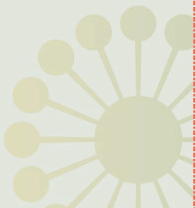BELIEVING AND KNOWING The mind is a sometimes devious mechanism. It often sees what it wants to see, and creates a reality with which the person is comfortable and can operate in safety. While Augustine and Anselm said that we must believe in order to see (credo ut intelligam), science wants us to see in order to believe. But there is some truth in what Anais Nin said, “We don't see things as they are; we see things as we are.” Just how important is belief to understanding? Do we accept the anecdotal material gathered by researchers, the inexplicable video and audio impressions, the recollections of children that suggest a previous life, the vast library of myth, legend, religious fable, and other outpourings of the human mind and experience as evidence that there is something more that exists beyond our knowing and beyond scientific verification? I believe that we do. While the veridical evidence of science seeks to uncover signs of the transcendent, there is also an element of the human psyche that not only wants to believe that there is more to life than we can see, but intuitively “knows” that there is. Humans fear death, not so much because we do not know what dreams may come, but because we are afraid that there will be no dreams. Joseph Campbell revised his definition of myth from the “search for meaning” to the “experience of life.” All of the stories we have heard throughout our lives about apparitions, psychic phenomena, “strange visitors from another planet,” the fabrications of the mind, episodes from a “galaxy far, far away,” after-death visions, and so on, all form the corpus of our life experience. When we examine the entire body of literature of the mind reaching beyond itself, we know that we are more than what we appear to be. An old anonymous Aztec poem says, “We come but to sleep, we come but to dream: It is not true, it is not true, that we come to live upon the earth.” And yet, in our dreaming we are alive. Before we can bring into the physical world the manifestation of love, we have to dream it, conceive it, and give birth to it. I am excited about this year’s conference on “What the Bleep Do We know About Life After Death?” because it appears that we will not only look at evidence and experience, but more importantly, how our thinking about the afterlife is structured. In the end, it is never the “how” that is important, but the “why.” Our mission statement call upon us to “enhance the development of the human spirit.” The enhancement comes in pushing beyond the normal, of slipping the surly bonds of earthbound thinking, and stretching beyond our grasp. Dr. Harry L. Serio
|
|
